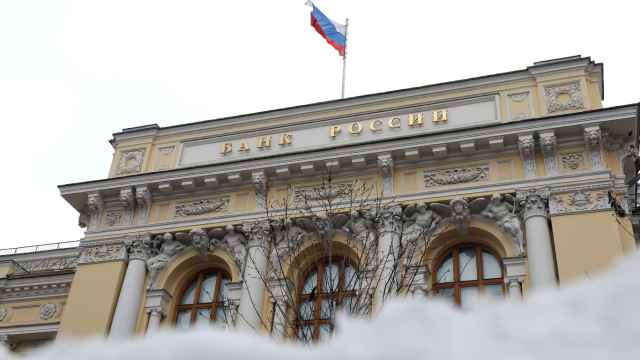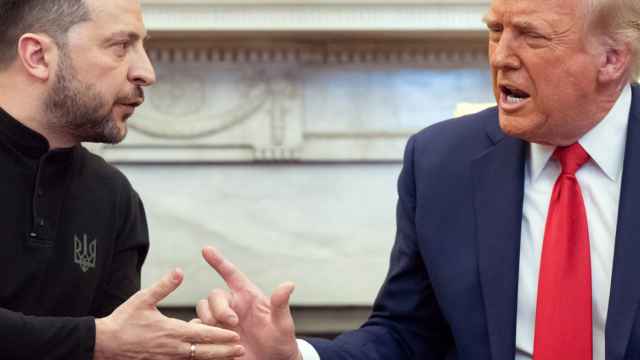Analysts have been talking about Russia’s natural resource curse for years, but now the discussion has reached the broader population as well.
Recent polls show that about half of all Russians are aware of the main fallout from the curse — that high oil prices, although profitable in the short term, have a negative impact on the country’s long-term development. The logic is simple: A windfall of petrodollars from unusually high oil prices has corrupted the ruling elite, eliminating the incentive for them to diversify the economy beyond the export of natural resources.
Nonetheless, there are many examples of countries whose economies were heavily reliant on raw materials but were able to diversity. Take, for example, the United States, which is one of the largest raw materials producers in the world. Last year, the United States replaced Russia as the world’s largest producer of natural gas, thanks in large part to its booming shale gas production. In addition, the United States is in second place for coal extraction and is the world’s third-largest oil producer. But proponents of the curse theory tend to downplay the United States as a leading global natural resource producer to avoid contradicting their theory.
Norway, Canada and Australia are three other good examples. They prove that stable democracies and effective public institutions make the resource curse virtually unnoticeable.
Ten years ago, the resource curse was a main topic of discussion among economic analysts and commentators. Many focused on the need to raise taxes on the oil and gas industry to stimulate investment in manufacturing and other sectors.
Surprising as it might seem, Russia actually made some progress in diversifying its economy. In addition to the manufacturing sector, Russia also has a significant services sector, and many economists believe that the growth of the service sector is a main indicator of a developed economy.
You can find another indicator of Russia’s diversity by looking at its employment figures. Today, 10.5 million Russians are employed in the manufacturing sector, or 10 times more than in the raw materials industry. Almost 12 million work in trade, 6 million in education, 5 million in health care and social services, 1.2 million in the hotel and restaurant business and another 1.1 million work in the banking and financial services sector. Thus, contrary to popular belief, manufacturing and service sectors dwarf the raw materials sector in terms of people employed. The problem, of course, is that the manufacturing and service sectors produce relatively little wealth for the country in comparison with oil and gas.
But even in a worse-case scenario — if, for example, all of Russia’s oil and gas were to disappear — it is highly unlikely that employees would suddenly start working better or that the ruling elite would rush to implement reforms.
We need to rely less on the theory of a natural resource curse as an explanation for most of Russia’s woes. Although there is some truth to this theory, Russia’s oil and gas wealth is by far not the main reason why the country lags behind other leading economic powers. We should focus less on curses and more on developing and modernizing the country’s political and economic institutions.
Konstantin Simonov, director of the National Energy Security Foundation, is a columnist for Vedomosti, where this comment appeared.
A Message from The Moscow Times:
Dear readers,
We are facing unprecedented challenges. Russia's Prosecutor General's Office has designated The Moscow Times as an "undesirable" organization, criminalizing our work and putting our staff at risk of prosecution. This follows our earlier unjust labeling as a "foreign agent."
These actions are direct attempts to silence independent journalism in Russia. The authorities claim our work "discredits the decisions of the Russian leadership." We see things differently: we strive to provide accurate, unbiased reporting on Russia.
We, the journalists of The Moscow Times, refuse to be silenced. But to continue our work, we need your help.
Your support, no matter how small, makes a world of difference. If you can, please support us monthly starting from just $2. It's quick to set up, and every contribution makes a significant impact.
By supporting The Moscow Times, you're defending open, independent journalism in the face of repression. Thank you for standing with us.
Remind me later.





